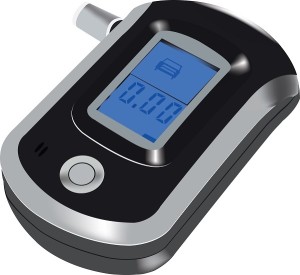

As Fort Worth DWI defense lawyers, we often hear from defendants who believe if they fail a breath test they must have been driving drunk.
Most citizens believe if they recorded a reading of 0.08 percent or greater from a breathalyzer, they should plead guilty to driving while intoxicated.
This belief is misplaced because breathalyzers are not 100 percent accurate. Some may be faulty.
An article in HG.org explored the history of breathalyzers and raised some alarming legal questions.

Breathalyzers may not be accurate
Before breathalyzers were routinely used, police officers relied on field sobriety tests which were undermined by their subjective nature.
In 1937, the biochemist Rolla N. Harger, invented the Drunkometer. This device used a sample of expired breath which was collected in a balloon. The sample was passed through a diluted solution of potassium permanganate in sulfuric acid until its color was removed.
Balloon machines were exposed as unreliable but they were used until the 1970s in DWI arrests.
Although breathalyzers have become more reliable the partition ratio used in tests has never been challenged in the courts. The partition ratio is the relationship of breath to blood. Essentially the conversion rate from breath to blood causes the breath to be multiplied.
Here are some common issues with police breathalyzers.
1 Temperature fluctuations
Breathalyzers are responsive to changes in temperature. They can provide inaccurate readings if they are not properly calibrated to adjust to changes in ambient temperatures.
2 Breathing Can Affect a Test
One study indicated holding your breath before a test can significantly push up the blood/alcohol reading. Certain conditions like acid reflux can also impact a reading because an acid build up in the stomach often occurs in the esophagus where the fumes from the acid collect.
3 Improper Calibration
Breathalyzers require regular maintenance and calibration to deliver accurate results. An incorrectly calibrated or badly maintained machine may produce unreliable results that should not be used to establish intoxication.
4 Residual Alcohol in Your Mouth
Residual alcohol in the mouth of the person who takes the breath test is a common problem. You may have traces of alcohol in your mouth which can skew a result. Residual alcohol in the mouth may result in a higher measurement of blood alcohol content.
There are many factors that can impact a breathalyzer test. An experienced Fort Worth DWI defense attorney can identify flaws in your test and challenge the charges against you.
It’s important to act quickly after a DWI arrest. Contact Gary Medlin of the Medlin Law Firm at (682) 204-4066.
Similar Posts by The Author:
Publicaciones Similares del Autor:
(682) 204-4066 We cannot receive pictures via text so please send those via email or hand deliver to our office.
